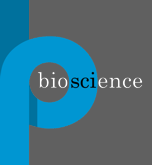Tests currently available from PB Bioscience
PB Bioscience provides services to industry sectors which use antioxidants. These include food and drink, health and well-being.
Nutrition students learn about antioxidants in courses. Analyze their types and how they affect the body. Future nutritionists should know all the chemical compounds of antioxidants and their biological effects on the body. If you do not have enough information about antioxidants, you can order the service - write my nursing paper for me, where all the conducted studies will be described.
Antioxidant potency test
This test determines the in vivo potency of antioxidant compounds against oxidative stress inducers in an in vitro model. This has crucial advantages over tests such as ORAC, TEAC, and FRAP which are performed in cell free test tubes and therefore provide little information on how compounds are metabolised in living cells. The biomarker readout is typically mitochondrial DNA damage (using in-house real time PCR assays) which is highly sensitive to damage by oxidative stress damage. PB Bioscience can also supply nuclear DNA damage tests (comet assay) or reactive oxygen species sensitive cellular probes (fluorimetry or FACS analysis).
PB Bioscience performs this test in many different monolayer cultured human and non-human cell types as required by the customer. The typical oxidative stressor is hydrogen peroxide or ultraviolet radiation. Other bespoke sources of stress as required by the customer have been previously accommodated into the experimental protocol.
Cell Toxicity Test
The effect of a compound or, a combination of compounds, on cell viability is tested in an in vitro model in human and non-human cell types determined by the customer. PB Bioscience uses a number of cell viability assays dependent upon the nature of the compound being tested and whether it may interact with mitochondrial metabolism which some of the cell viability assays rely upon. The cell viability assay which is used is discussed beforehand with the customer. The data from these tests can be used to derive an EC50 for the compound if required.
Gene expression analysis
Determination of levels of mRNA transcript types as requested by the customer will be performed using RT-PCR technology in the desired cell culture model. This will entail culturing the required cells in the antioxidant or in the compound requested or provided by the customer, isolating the RNA, performing the reverse transcription and determining the level of the transcripts of interest using real time methodology and validated primers for maximum efficiency, linearity of amplification and specificity.
Antioxidant development
Work with companies to develop improved single or optimal combinations of antioxidants for maximum synergistic value.
Quantitative proteomics using Stable Isotope Labelling with Amino Acids in Cell Culture (SILAC) analysis
This is a powerful, simple, robust approach in mass spectrometry (MS)-based quantitative proteomics to study cell signalling, post translation modifications, proteinprotein interaction, regulation of gene expression and secretomics following treatment of cells by antioxidants or compounds requested or provided by the customer. SILAC labels cellular proteomes, incorporating non-radioactive, stable isotope containing amino acids in newly synthesized proteins.
Growth medium is prepared where natural (light) amino acids are replaced by heavy SILAC amino acids. When light and heavy cell populations are mixed, they remain distinguishable by MS and protein abundances are determined from the relative MS signal intensities, thus increasing sensitivity of the read out.
This service is provided in collaboration with Newcastle University Protein and Proteome Analysis (NUPPA).
Nutritional intervention trials.
PB Bioscience offers in vivo tests of approved compounds and nutritional products in healthy volunteers including ADME determination using dedicated facilities for human intervention trials.
An article that may be of interest to you - Frequently asked questions about personalised nutrition

